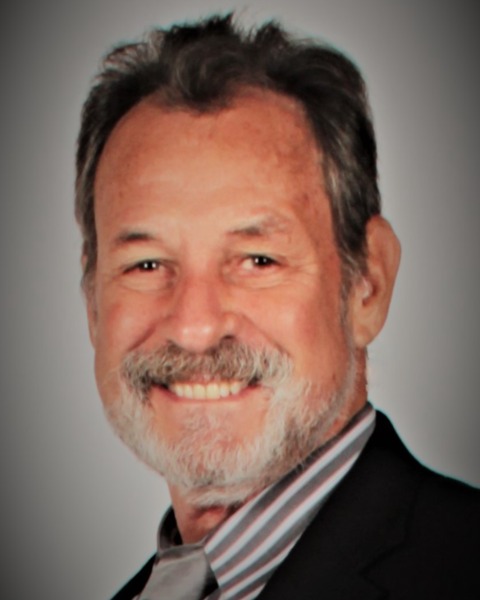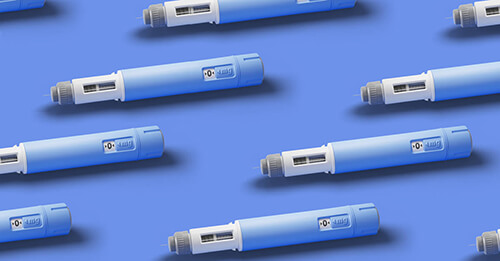Behind the Scenes of the PDA Combination Products Workshop PDA Expert Interview with Lee Leichter, RAC, MBA, P/L Biomedical
To set the scene for our interview with Lee Leichter, it is important to note that a workshop is fundamentally different from a conference. A workshop is designed for highly engaged conversations among attendees. It is not didactic; it encourages interactions and problem-solving exercises shared by the group. The model for the PDA Combination Products Workshop this October 24-25 has Lee, a planning committee member, excited and optimistic that it will be a game changer for participants.
Group Dynamics
As a longtime chair who has made many presentations at professional pharma conferences over the years, Lee has the hands-on experience and expertise about the dynamics that make events successful. He has been working with his committee teammates to develop a novel approach for this two-day workshop that will encourage attendees to use critical thinking and innovative problem-solving skills to tackle two case studies that are paradigms for real-life challenges in the industry.
The workshop is customized to guide attendees through the entire lifecycle of combination products and medical devices, focusing on critical development activities. It is ideal for professionals involved in development/engineering, regulatory affairs, quality assurance, lifecycle management and manufacturing of combination products and medical devices.
As Lee states, “The intent of the workshop is to provide the most benefit for participants to think differently and work with the group. The case study exercises don’t work if it’s not a group conversation.” How do you create the right environment for a successful workshop? Lee explains, “We give them clear goals with guidelines and objectives of the problems at hand.” With the right runway, tools and instructions, everyone can more effectively evaluate any situation. Lee elaborates that one of his roles at the workshop is to run one of the case study sessions to instigate, elicit, and encourage the group to interact and share ideas.
In-Depth Experience
Lee is a valuable asset to the committee with over 50 years of experience in the healthcare industry, providing direct, hands-on assistance to domestic and international pharmaceutical, biotechnology and medical device companies. He has worked with large multinational companies and startups, successfully navigating the challenges presented during the development, testing and marketing approval of products that merge pharmaceutical substances with high-tech device systems. Serving as an independent expert, he has directly interacted with the U.S. FDA and other health authorities on specific projects. He has proposed and responded to FDA positions and proposals covering combination products.
About the Expert
 Lee Leichter, RAC, MBA, P/L Biomedical
Lee Leichter, RAC, MBA, P/L Biomedical
Lee Leichter has close to 50 years’ experience in the health care industry, providing direct, hands-on assistance to domestic and international pharmaceutical, biotechnology and medical device companies for the last 30 years. Projects have encompassed a multitude of business, technical, regulatory and quality issues, primarily related to drug delivery and combination products for marketing in the United States, Europe and Canada. He has worked with large multi-national companies, as well as start-ups, successfully navigating the challenges posed during the development, testing and marketing approval of products that merge pharmaceutical substances with high-tech device systems. He has been a subject matter expert working with the ISO and AAMI committees on drug delivery devices and combination products, and convenor for the just published ISO On-Body Delivery Systems Standard. He is currently the PDA IG Leader for Combination Products.
Hands-On Learning
 Lee adds that the workshop's content will be decidedly different and non-competitive with its companion conference, PDA Universe of Pre-Filled Syringes and Injection Devices Conference,
on 22-23 October in Phoenix. The case studies for the workshop will focus on addressing the lifecycle of two different injectable medications, from development, testing, clinical studies, manufacturing, registration and launching to post-market considerations
and processes. Each 90-minute case study conversation will cover a different aspect of bringing a new drug to market. The cases will cover two very different combination products that have unique challenges and considerations: a pre-filled ocular
syringe and an on-body wearable delivery system.
Lee adds that the workshop's content will be decidedly different and non-competitive with its companion conference, PDA Universe of Pre-Filled Syringes and Injection Devices Conference,
on 22-23 October in Phoenix. The case studies for the workshop will focus on addressing the lifecycle of two different injectable medications, from development, testing, clinical studies, manufacturing, registration and launching to post-market considerations
and processes. Each 90-minute case study conversation will cover a different aspect of bringing a new drug to market. The cases will cover two very different combination products that have unique challenges and considerations: a pre-filled ocular
syringe and an on-body wearable delivery system.
Both studies set up complex variables that require a systems-thinking approach to innovation. The exercise is a practical application of complex combination product development theory with the added value of a room full of experts who can share their own successes and challenges in this highly integrated process. Lee adds that the case studies should illuminate the importance of including different inputs from all functions and areas in the process. It is a real-life case of the "power of the whole" collaborative problem-solving approach. The overarching goal is to help professionals improve, adapt to change, think holistically about the combination product development lifecycle and take that learning back to their organizations.
Must-Attend
Lee underscores the core reasons to attend the workshop are “… to understand the process, systems and complexities as defined by launching a combination product. You don’t want to underestimate the effort, resources and complexities involved in the process.” He says that one of the mistakes many people make is to go forward without enough information. Without understanding the end goal, all the data and decisions will occur without the necessary context for the ultimate solution. “We want participants to ask questions, explore the hidden risks and consider how the patient may think about the drug delivery.”
Lee adds that there are no standardized playbooks for bringing a new product to market. Since the product development lifecycle is fluid, Lee advocates attending the workshop for stimulating exploration, collegial experience and an understanding of the value of a holistic approach to the development and manufacturing lifecycle of a new drug.
What would you risk by not attending? Lee says unequivocally, “Time and money.” He adds that the consequences of a delayed launch can mean hundreds of thousands of dollars and months of wasted effort. The upcoming workshop can help participants approach their work more efficiently and effectively, understanding the entire process. Hence, the result is a product that meets all the users’ needs and functional and regulatory requirements.
If you are still sitting on the fence considering attending the workshop, Lee says, “Working with other people from other companies, iteratively solving problems with other experts from different companies is a great experience.” Lee goes on to say, “The interactive experience is a way to learn by teaching others and enhancing everyone’s education. You’ll get to work with a lot of different people, hear a lot of opinions and get exposed to new ideas and solutions. The level of collective knowledge is invaluable.”


